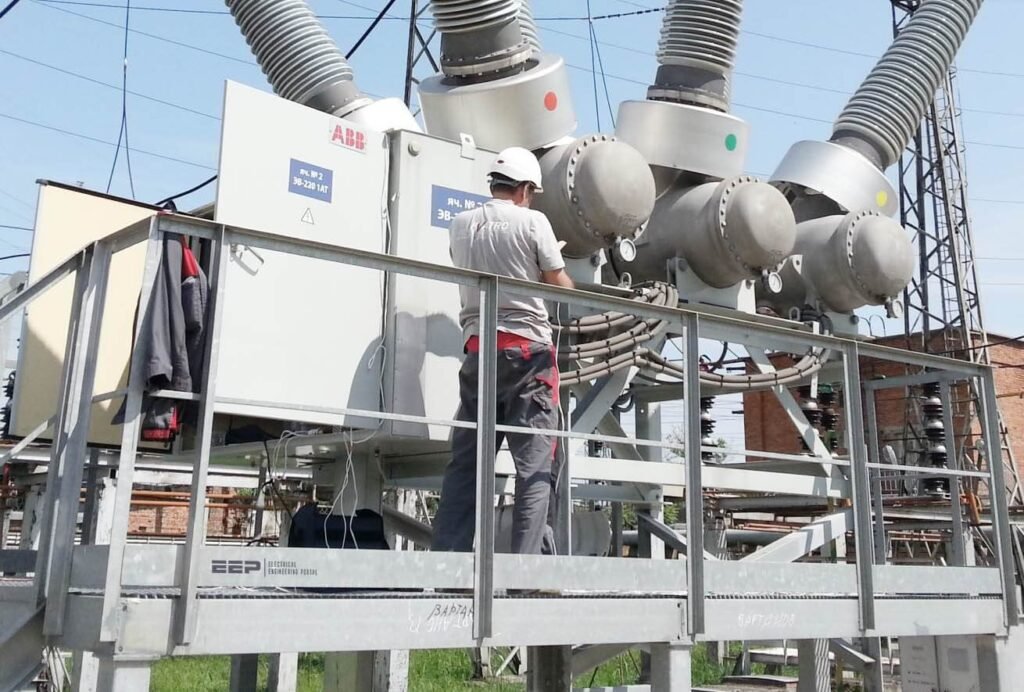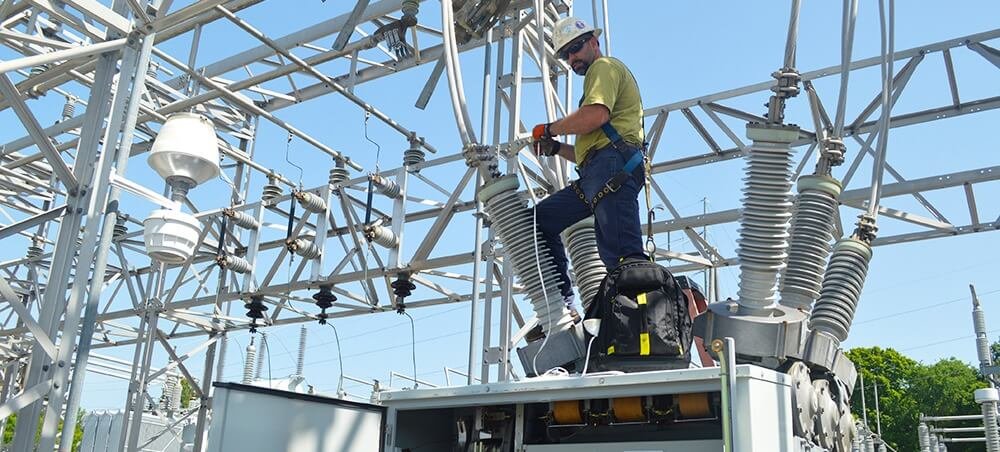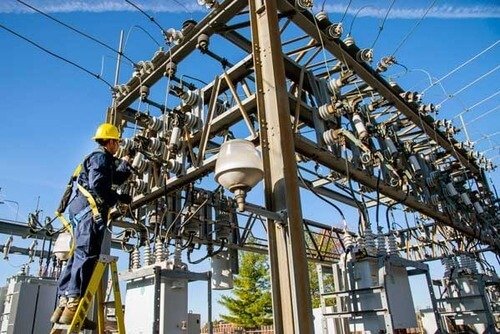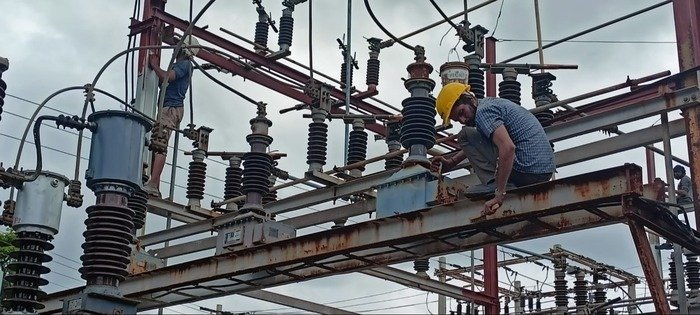The electrical power sector is fast changing and the demand of qualified personnel to maintain, operate and build this much-needed infrastructure is unprecedented. Among these essential roles, substation technician jobs represent some of the most rewarding and technically challenging career opportunities available in the electrical engineering sector. These jobs are well paid, secure, and rewarding given that the employees use the latest technology that directly affects people and economies worldwide.
Substation technician jobs encompass a diverse range of responsibilities, from routine maintenance and testing to complex troubleshooting and emergency repairs. With power grids getting more complex and renewable energy integration at a faster rate, the skills needed to work in these positions has grown tremendously. Modern technicians operating in substations have to be versed in not just conventional electrical systems, but also in digital protection systems, SCADA systems and smart grid systems that are now changing the face of the industry.

Understanding the Role of a Substation Technician
Core Responsibilities and Daily Operations
The substation technician is the backbone of the electrical power distribution and transmission systems. These professionals make sure that high-voltage equipment works safely and efficiently and ensure the balance between power generation and consumption which modern society critically relies on. This position needs a special set of technical skills, awareness of safety, and problem-solving skills that are needed by few other jobs in the electric world.
The routine duties of the people who have electrical substation jobs are to perform regular inspection of transformers, circuit breakers, disconnect switches, and protective relay systems. They conduct preventive maintenance activities like oil sampling, inspection/testing of insulation, and cleaning of equipment, which play important roles in ensuring expensive breakdowns do not occur and the system is reliable. Moreover, such technicians are supposed to be ready to act in emergency cases, and sometimes they receive the assignments under pressure to fix power to the critical infrastructure or residential buildings.
Another critical element of substation work is documentation and record-keeping. Technicians should also keep good records of the performance of an equipment, maintenance procedures, and any abnormal situation that they discover in the process of work. This is necessary information to comply with regulations, warranty claims and long term asset management planning. Moreover, the technicians working in substations nowadays tend to use computerized maintenance management systems and digital documentation systems more often.
Essential Skills and Qualifications
The electrical substation technician line of work needs a multi-dimensional skill base balancing both theoretical and hands-on expertise in order to be successful in this job field. The majority of the employers would prefer to employ those with a formal education either using technical schools or community colleges; though the positions sometimes do need full degrees in electrical engineering. The second is by use of apprenticeship programs which are available by the utilities and contractors and with them, the participants gain practical experience as they work with skilled individuals.
Technical skills that are vital in the construction of substation jobs are a comprehensive knowledge of electrical concepts especially in the high voltage units. The technicians will be required to read and understand complicated electric schematics, one-line diagrams, and equipment manuals. Understanding of protective relay principles, power system analysis and equipment testing procedures becomes more critical as technologies become more complex and systems get more interconnected.
The safety training is, probably, the most crucial qualification that anyone is going to acquire when trying to pursue the jobs of substation electricians. Working with high-voltage devices is a severe risk, and one should always be extra vigilant and follow strict safety measures. These positions are usually required to have OSHA certification, arc flash training and utility safety course programs. Most employers also demand safety refresher training on a periodic basis so as to keep the technicians up to date with the changes in the best practices and regulatory compliance.
Career Paths and Specialization Opportunities
Construction and Installation Roles
Electrical substation construction jobs offer exciting opportunities for technicians who enjoy working on new projects and seeing facilities come to life from the ground up. These positions typically involve installing transformers, switchgear, control panels, and associated equipment according to detailed engineering specifications. Construction technicians work closely with project managers, engineers, and other trades to ensure installations meet quality standards and timeline requirements.
The construction phase of substation projects requires specialized knowledge of rigging techniques, foundation work, and equipment commissioning procedures. Technicians in these roles must be comfortable working at heights, operating heavy machinery, and coordinating with multiple contractors on busy job sites. Many professionals find construction work particularly rewarding because they can see tangible progress daily and take pride in completing facilities that will serve communities for decades.
Career advancement opportunities in substation construction jobs often lead to supervisory roles, project management positions, or specialized technical expert roles. Some technicians choose to become independent contractors, offering their expertise to multiple clients on a project basis. Others may transition into engineering roles, using their field experience to inform design decisions and improve construction practices.
Operations and Maintenance Specialization

Substation operator jobs focus primarily on the ongoing operation and maintenance of existing facilities. These positions typically offer more predictable schedules and work environments compared to construction roles, making them attractive to technicians who prefer routine-based work. Operators are responsible for switching operations, equipment monitoring, and coordinating with system dispatchers to maintain grid stability and reliability.
The maintenance aspect of these roles involves conducting periodic testing of protective relays, circuit breakers, and other critical equipment. Substation relay technician positions represent a highly specialized subset of maintenance roles, requiring deep expertise in digital protection systems and testing equipment. These professionals often command premium compensation due to their specialized knowledge and the critical nature of their work.
Emergency response capabilities are crucial for professionals in operations roles. When equipment failures occur or system disturbances arise, substation tech jobs require quick thinking and decisive action to minimize outage duration and prevent cascading failures. This aspect of the work can be stressful but also provides tremendous job satisfaction when successful restoration efforts bring communities back online.
Emerging Technologies and Future Opportunities
The integration of renewable energy sources and smart grid technologies is creating new specialization opportunities within traditional substation technician jobs. Solar and wind integration requires understanding of inverter-based resources, energy storage systems, and advanced grid management software. Technicians who develop expertise in these emerging technologies often find themselves in high demand and can command premium compensation.
Cybersecurity represents another growing area of concern for substation operations. As facilities become increasingly connected to corporate networks and the internet, protecting critical infrastructure from cyber threats has become a priority. Some technicians are specializing in industrial cybersecurity, combining traditional electrical knowledge with information technology skills to secure substation control systems.
Digital twin technology and predictive maintenance systems are beginning to transform how substations are monitored and maintained. These technologies use advanced sensors, machine learning algorithms, and data analytics to predict equipment failures before they occur. Technicians who embrace these technologies and develop skills in data analysis and predictive maintenance techniques will likely find themselves at the forefront of industry evolution.
Industry Outlook and Career Prospects
Market Demand and Job Security
The outlook for substation technician jobs remains exceptionally strong, driven by several converging factors that are reshaping the electrical power industry. Aging infrastructure across many developed nations requires extensive modernization and replacement, creating sustained demand for skilled technicians who can execute these critical projects. In the United States alone, much of the transmission and distribution infrastructure was built in the 1950s and 1960s and is now approaching the end of its useful life.
Renewable energy integration is accelerating the pace of grid modernization, as traditional power systems must be adapted to accommodate variable generation sources like solar and wind. This transition requires new substations, upgraded equipment, and more sophisticated control systems that demand highly skilled technicians for installation and maintenance. The growth of electric vehicle adoption is also driving demand for new distribution infrastructure and charging systems.
The specialized nature of electrical substation jobs provides excellent job security, as these skills are not easily automated or outsourced. The work requires hands-on expertise and safety training that can only be developed through extensive experience and continuous education. Additionally, the critical nature of electrical infrastructure means that these positions are generally recession-resistant, as utilities must maintain their systems regardless of economic conditions.

Compensation and Benefits
Compensation for substation technician jobs typically exceeds that of many other electrical trades, reflecting the specialized skills and responsibilities required. Entry-level positions often start at competitive wages, with significant opportunities for advancement based on experience and additional certifications. Many employers offer comprehensive benefits packages including health insurance, retirement plans, and continuing education support.
Overtime opportunities are common in this field, particularly for technicians involved in emergency response and major maintenance projects. Many utilities operate on rotating schedules that include premium pay for weekend and holiday work. Additionally, some positions offer hazard pay or shift differentials for work performed under challenging conditions or during off-peak hours.
Professional development support is another valuable benefit offered by many employers in this field. Companies often pay for additional training, certification programs, and even college coursework that enhances technicians’ skills and career prospects. This investment in employee development reflects the high value these companies place on retaining skilled workers in a competitive job market.
Geographic Opportunities and Regional Variations
Substation jobs are available nationwide, but certain regions offer particularly strong opportunities due to rapid growth, infrastructure modernization needs, or abundant renewable energy resources. Texas, California, and the Southeast have seen significant transmission expansion in recent years, creating numerous construction and maintenance opportunities for qualified technicians.
Rural and remote locations often offer premium compensation to attract skilled workers, as utilities must maintain infrastructure in areas where population density makes recruitment challenging. These positions can provide excellent career opportunities for technicians who don’t mind working in less populated areas and may offer unique benefits such as company housing or travel allowances.
International opportunities are also available for experienced technicians willing to work overseas. Many developing nations are investing heavily in electrical infrastructure expansion, creating demand for skilled workers who can share their expertise and help build modern power systems. These positions often offer significant financial incentives and the opportunity to experience different cultures while advancing professional careers.
Skills Development and Training Pathways
Formal Education and Certification Programs
Success in substation technician jobs typically begins with solid educational foundations that can be obtained through various pathways. Technical colleges and community colleges offer associate degree programs in electrical technology that provide comprehensive training in electrical theory, safety practices, and hands-on skills development. These programs often include specific courses focused on power systems, protective relaying, and high-voltage equipment that directly apply to substation work.
Apprenticeship programs represent another excellent pathway into electrical substation technician jobs, combining classroom instruction with paid on-the-job training under experienced mentors. These programs typically last three to four years and provide graduates with both theoretical knowledge and practical experience that employers highly value. Many utilities and electrical contractors sponsor apprenticeship programs specifically designed to prepare workers for substation careers.
Industry certifications can significantly enhance career prospects and earning potential for professionals in substation electrician jobs. The North American Electric Reliability Corporation (NERC) offers system operator certifications that are increasingly required for many positions. Equipment manufacturers also provide specialized training and certification programs for their products, which can make technicians more valuable to employers who use specific brands or technologies.
Continuing Education and Professional Development
The rapidly evolving nature of electrical power systems makes continuing education essential for long-term success in substation jobs. New technologies, updated safety standards, and changing regulatory requirements mean that technicians must commit to lifelong learning to remain effective in their roles. Many employers support this ongoing education through tuition reimbursement programs and paid time off for training activities.
Professional organizations such as the Institute of Electrical and Electronics Engineers (IEEE) and the International Association of Electrical Inspectors (IAEI) offer conferences, webinars, and technical publications that help technicians stay current with industry developments. Participation in these organizations also provides valuable networking opportunities that can lead to career advancement and job opportunities.
Specialized training in emerging technologies can provide significant competitive advantages for ambitious technicians. Courses in renewable energy integration, energy storage systems, and smart grid technologies are increasingly valuable as the industry continues to evolve. Some technicians also pursue additional certifications in related fields such as industrial automation or cybersecurity to broaden their skill sets and increase their versatility.
Conclusion
Substation technician jobs have wonderful career opportunities to offer those people who want to work in the challenging and well-paid electrical power industry in one of the most demanded spheres. Whether building electrical substations that will compose tomorrow, or keeping the substations of today operational by working with them, the jobs are safe, rewarding and bring good growth opportunities. The need for skilled professionals will only go up as the industry shifts towards incorporating the renewable energy and smart grid technologies in the industry.
The subject of electrical substation is varied and therefore individuals with different interests and capabilities can attain fulfilling careers in the field. Whether it be the interest of the problem solving processes of maintenance work, the project nature of the construction business or the knowledge of the relay technician, there are avenues of success to those professionals who have the drive to invest their time and energy in the educational and training processes.
IET is the leading electrical engineering firm in East Africa, and has been operating there since the late 1930s, providing power transmission and distribution solutions in Kenya, Uganda and Tanzania. The experience we have in MV switchgear, transformers, industrial automation and substation technologies means that we are the right fit to partner organizations and develop their electrical infrastructure and technical capacity. Contact IET now and learn how our full range of solutions and our extensive regional experience can assist you in meeting your power system needs and help you develop your career within the electrical industry.

Leave a Reply